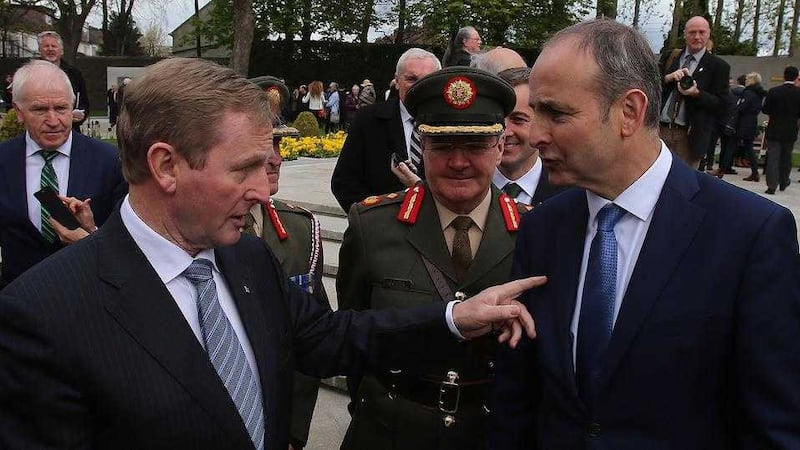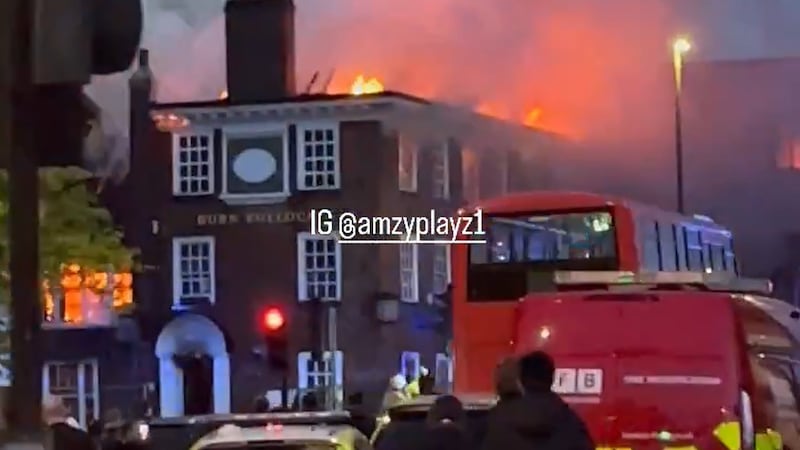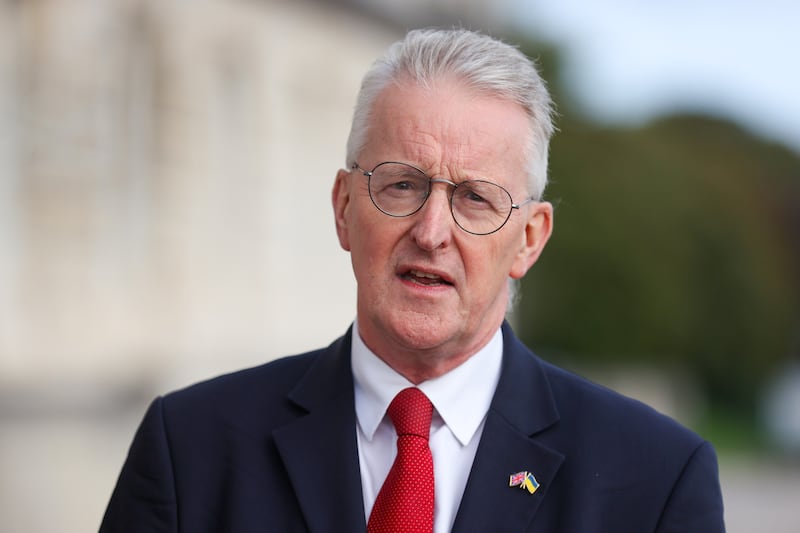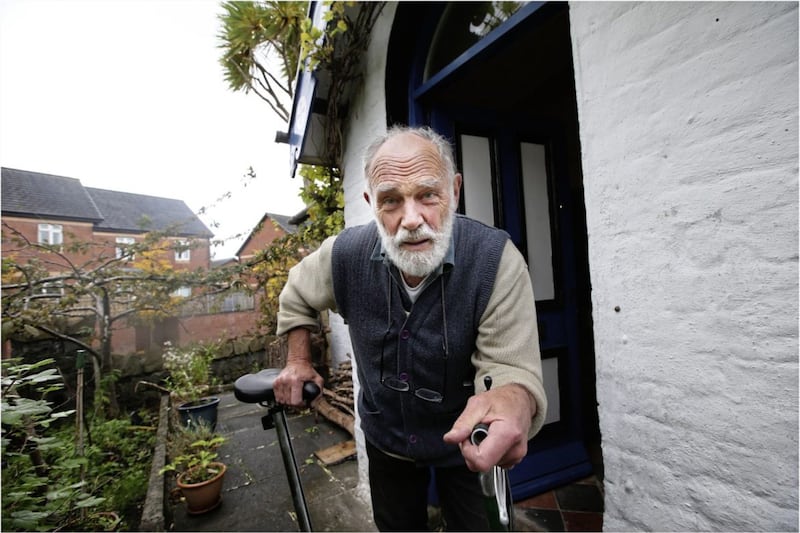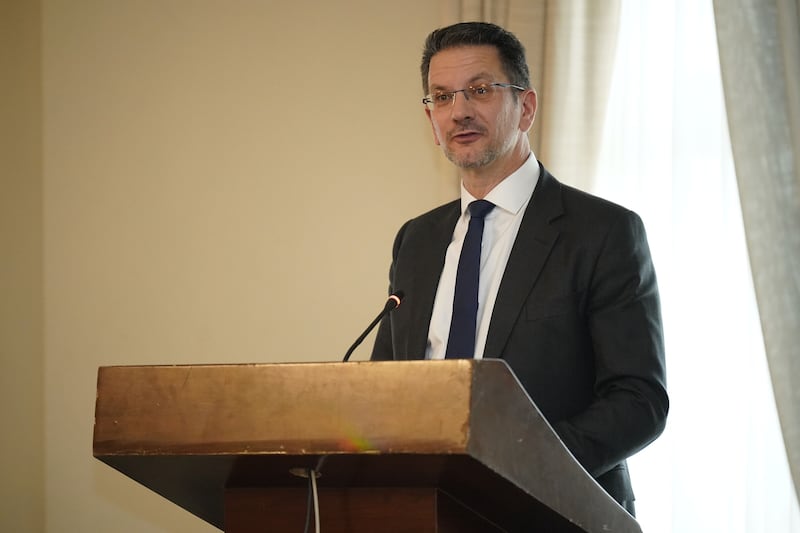THERE should be a formal north-south dialogue on the implications of the Brexit referendum, Fianna Fáil leader Micheál Martin said, but he rejected the word “forum” as a label for such a process.
He expressed strong opposition to Sinn Féin's call for a border poll as completely premature and he pointed out that the majority in the north against Brexit did not equate to a majority in favour of a united Ireland.
Mr Martin was also sharply critical of the manner in which the DUP and Sinn Féin treated other parties in the power-sharing executive in the north.
He also dismissed suggestions that Fianna Fáil would pull down the minority government in the south because his party was doing well in the opinion polls.
Describing the Sinn Féin demand for a poll on Irish unity as "a knee-jerk reaction" to the referendum result, the Fianna Fáil leader said: "Fifty-six per cent voted against Brexit, that is to say, to remain within the European Union."
He added that this was not the equivalent of voting for a united Ireland: "I think it would be wrong to say that."
Speaking at his office in Leinster House, he said: "To me, Irish unity is about consensus, it's about a unity of people and not necessarily just territory. It's not about 51 per cent versus 49 per cent, it can never be about that.
"The Fianna Fáil principle has always been about the unity of 'Protestant, Catholic and Dissenter', to quote Wolfe Tone, and it's not about majoritarianism or territorial supremacy."
Mr Martin’s proposed dialogue on the Brexit fall-out would not be concerned with constitutional issues but have as its focus the potential economic and social consequences in relation to the Common Travel Area, border checks, farming, education and other issues.
As an initial step, he is urging a plenary conference to be attended by stakeholders from north and south, including the unions, business representatives, farm organisations, community groups and others, to get the dialogue started.
There would be minimal political involvement although the Irish government could convene the conference and provide a secretariat as back-up.
As for a border poll, which has also been mentioned by Taoiseach Enda Kenny recently, Mr Martin said: "I don't think it's going to be any time soon. I don't think it will be in the next number of years."
Regarding Fianna Fáil's own future in the north and possible participation in elections, he said this matter was still under review: “Some work needs to be done on that.”
The party was registered and had a branch in Queen's University as well as "fora" or groups elsewhere.
Commenting on the legacy of the Troubles, Mr Martin called for full accountability from all sides in the conflict, including the British government as well as paramilitary organisations and their political supporters.
He had sharp criticisms of collusion between loyalist paramilitaries and the security forces, not just in relation to the 1994 Loughinisland massacre but other atrocities as well: "The collusion is very serious, because it involves the state."
But Mr Martin is also highly critical of the role played by the IRA and Sinn Féin.
"The Sinn Féin position is - they keep talking about a truth commission, which they know will not happen and their people will not participate in."
In relation to the Kingsmill inquest, he said the 1976 massacre of 10 Protestant workmen was a "heinous sectarian crime" which was carried out by the IRA, whose actions were consistently defended by Sinn Féin.
Turning to the political situation in the north since the assembly elections, how did Mr Martin view the decision by a number of parties to go into opposition?
"I think it was the inevitable consequence of relationships on the executive over the last decade and the degree to which the DUP and Sinn Féin essentially operated a government within a government and never really included the SDLP and the Ulster Unionists in decision-making."
He said that "memos were kept" from SDLP and UUP ministers "until the very last moment".
"The deals would be done between the DUP and Sinn Féin and [then] the others would be told about them."
Turning to the southern scene, he gave Fianna Fáil's take on the new political set-up there.
"You have a minority Fine Gael government, facilitated in an agreement by us to abstain on votes of confidence and to facilitate the passage of budgets, subject to policy principles that we've attached to that."
Asked if this arrangement could really last until the end of 2018 as set out in the agreement, Martin replied: "I think there's every chance it will, yes."
He completely rejected the notion that, given the party's strong performance in recent opinion polls, Fianna Fáil would pull the plug and precipitate an early general election. "Absolutely not," he said.
